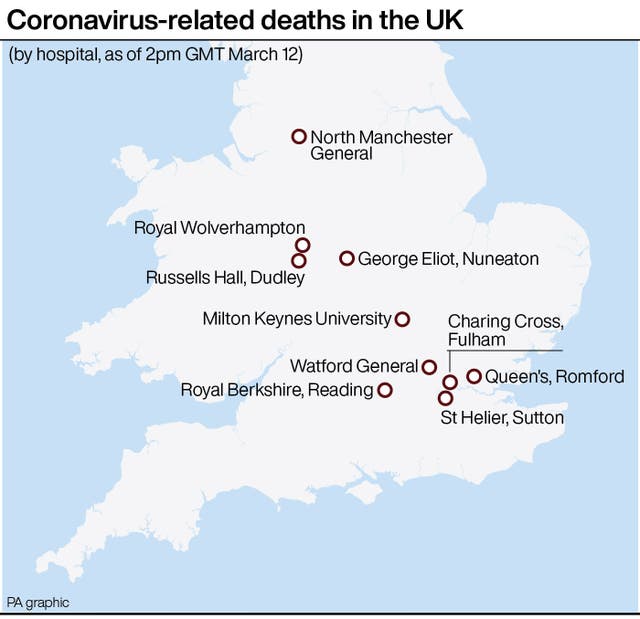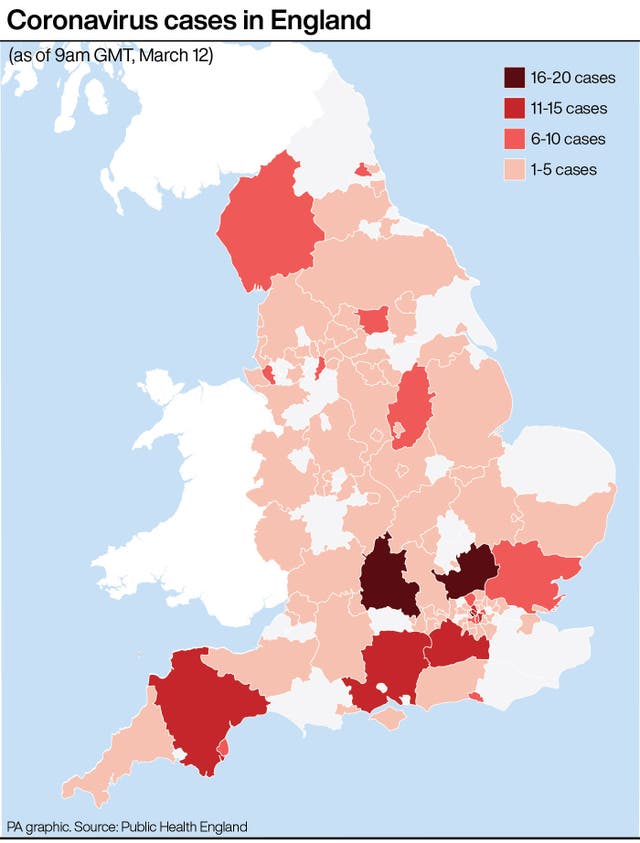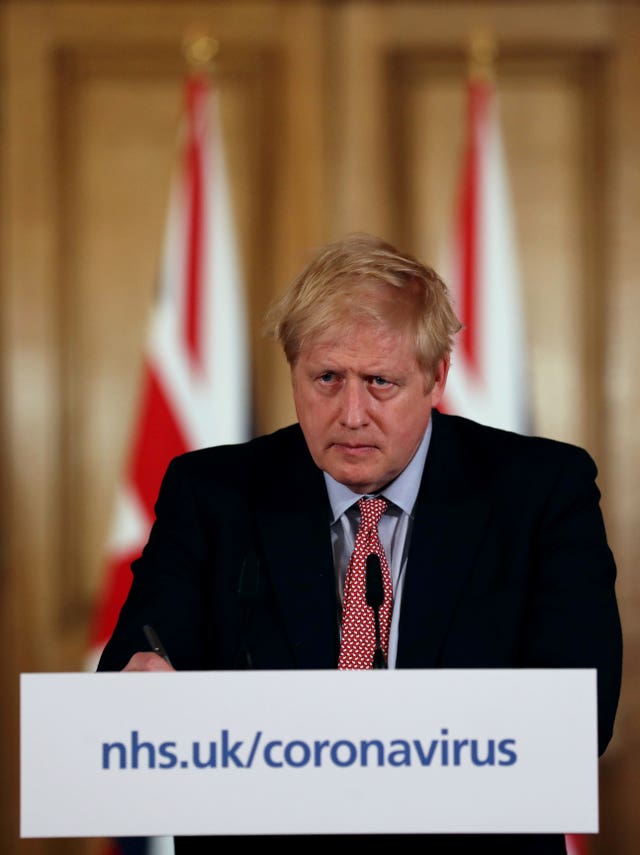Coronavirus is the worst public health crisis for a generation, says PM
The actual number of people infected in the UK at the moment could be between 5,000 and 10,000.

Coronavirus “is the worst public health crisis for a generation”, the Prime Minister has said as he set out measures that could “cause severe disruption” for many months.
Boris Johnson said anyone with coronavirus symptoms, however mild, such as a continuous cough or high temperature, must now stay at home for seven days.
He said school trips abroad should be stopped, while people over 70 with serious medical conditions should not go on cruises.
He said this tactic may change at some point while in the future anybody living with somebody who is taken ill could be told to self-isolate for seven days.
That measure is not being advised yet, the PM said, but he added: “I want to signal now that this is coming down the track.”
“We’ve all got to be clear, this is the worst public health crisis for a generation,” said the PM.
“Some people compare it to seasonal flu, alas that is not right.
“Due to the lack of immunity this disease is more dangerous.
“It is going to spread further and I must level with you, I must level with the British public: many more families are going to lose loved ones before their time.”

“If you have coronavirus symptoms however mild, either a new continuous cough or a high temperature, then you should stay at home for at least seven days to protect others and help slow the spread of the disease,” the PM said.
The Government was also “considering the question of banning major public events such as sporting fixtures”, he said.
“And the scientific advice, as we’ve said over the last couple of weeks, is that banning such events will have little effect on the spread but there’s also the issue of the burden that such events can place on public services.”
Sir Patrick Vallance, the Government’s chief scientific adviser, said the actual number of people infected in the UK at the moment could be between 5,000 and 10,000.

The chief medical officer for England, Professor Chris Whitty, said – in agreement with counterparts in Scotland, Wales and Northern Ireland – the risk rating from coronavirus has been raised to high.
Explaining the advice to self-isolate for seven days if people have a cough or temperature, Prof Whitty acknowledged it was “something which will interfere with their lives and interfere with their work and their social life in quite significant ways”.
But he said “it helps to protect older and more vulnerable people” they might come into contact with and would also reduce, and possibly delay, the peak of the epidemic, making it easier for the NHS to cope.
The Prime Minister added: “There is no escaping the reality that these measures will cause severe disruption across our country for many months.

In a message to the elderly, Mr Johnson said that although the disease was “particularly dangerous” for them, the vast majority would experience “a mild-to-moderate illness”.
Mr Johnson warned that the most dangerous period is some weeks away. He added: “The most important task will be to protect our elderly and most vulnerable people during the peak weeks when there is the maximum risk of exposure to the disease and when the NHS will be under the most pressure.”
The Government has moved to the delay phase of its four-part plan. It came as two more deaths were announced in British hospitals and the number of people in the UK who have officially tested positive for coronavirus reached 596.
Ten people have died in the UK after testing positive for Covid-19.
The latest deaths were of an 89-year-old at Charing Cross Hospital in London and a woman in her 60s at Queen’s Hospital in Romford. Both had underlying health conditions.
From Monday, mass gatherings in Scotland above 500 people are set to be restricted, while Ireland announced the closure of schools and tourist attractions until the end of the month.
Irish premier Leo Varadkar said schools, colleges and childcare facilities will close until March 29 as a result of the coronavirus outbreak, which is now regarded as a global pandemic.
Museums, galleries and other tourist destinations will also close as a result of the action.
The Prime Minister defended the UK’s approach to the pandemic, which has been less dramatic than those actions taken by the US, Italy or Ireland.
“The measures that I have discussed today… staying at home if you think you have the symptoms, your whole household staying at home, looking after the elderly – making sure the elderly and vulnerable stay at home – these are the three most powerful defensive lines,” he said.
“We think it’s very important to maintain public trust and confidence in what we are doing, throughout this challenging time, always to be guided by the best possible scientific advice.”





